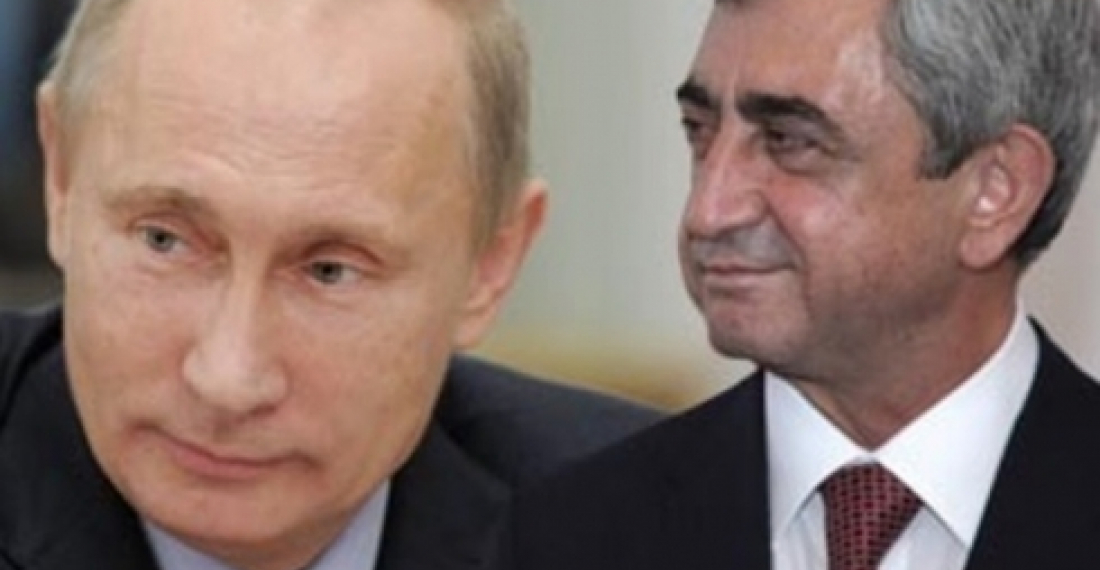Armenia has hailed the referendum held in Crimea on Sunday "exercise of peoples’ right to self-determination via free expression of will". The Armenian President Serzh Sargsyan spoke on the phone with Russian President Vladimir Putin on Wednesday to discuss bilateral issues and the international situation.
A statement from the Armenian President's office said:
Serzh Sargsyan and Vladimir Putin discussed a number of current issues on Armenian-Russian bilateral relations, the international and regional agenda as well as touched upon Armenia’s decision to join the Customs Union and the activities carried out in that direction. The Presidents shared opinions regarding the crisis in Ukraine and the ways out of it. In that context the Presidents touched upon the situation after the referendum in Crimea and stated that the latter constitutes another case of exercise of peoples’ right to self-determination via free expression of will. At the same time the Presidents highlighted the importance of commitment to the norms and principles of the international law, first and foremost the UN Charter.
The heads of states also discussed the process of the Nagorno-Karabakh conflict settlement and steps taken in that direction. The President of Armenia highly appreciated the activities of Russia as an OSCE Minsk Group Co-chair and underlined the importance of the joint efforts targeted at the peaceful resolution of the conflict. Serzh Sargsyan reaffirmed Armenia’s readiness to continue the joint efforts together with the OSCE Minsk Group Co-chairs on the resolution of the conflict.
The phone call was initiated by the Armenian side.
source: commonspace.eu with the press Office of the President of Armenia







